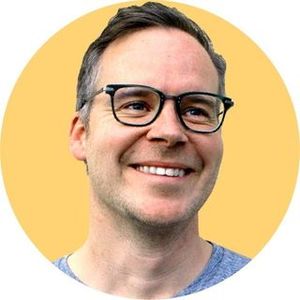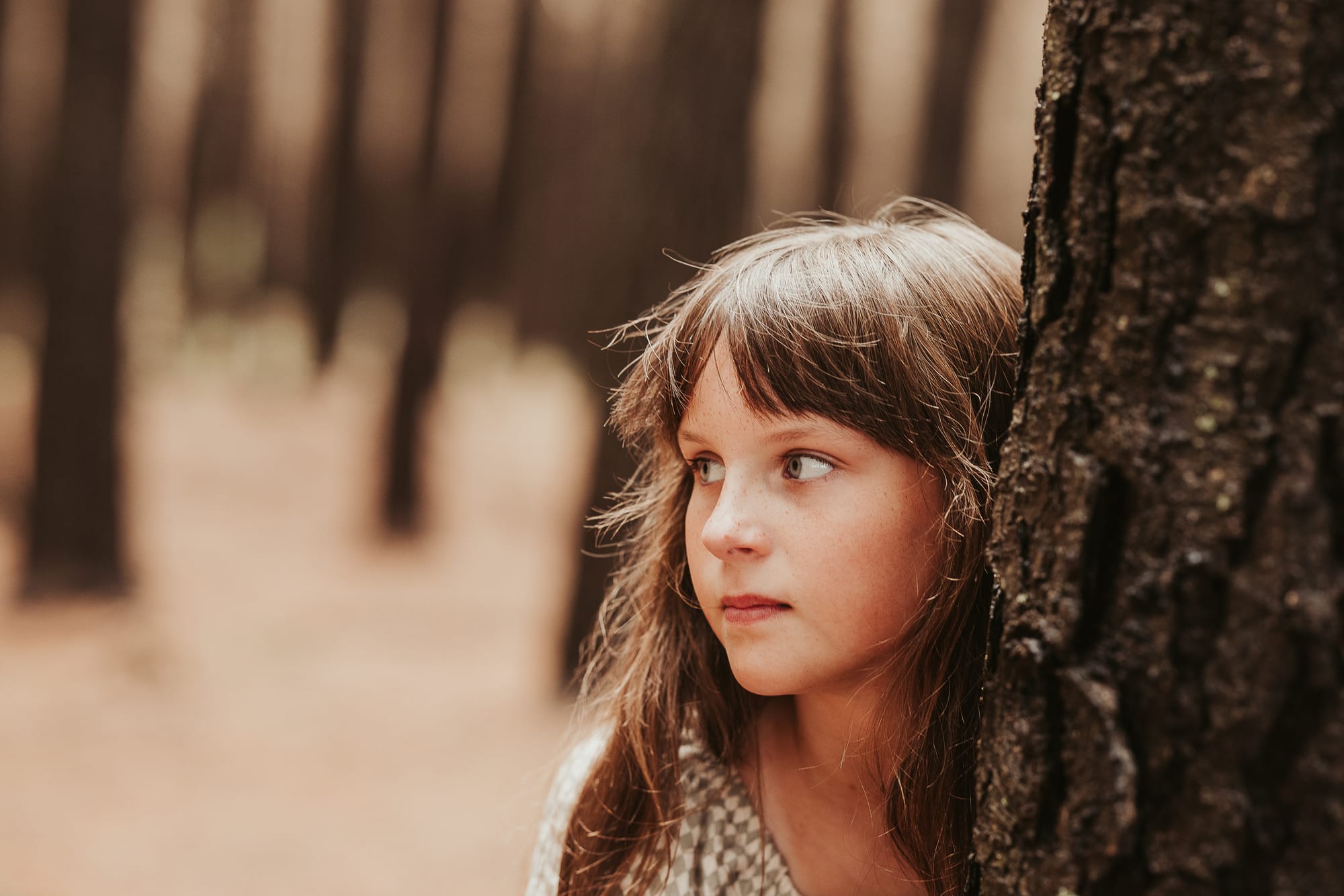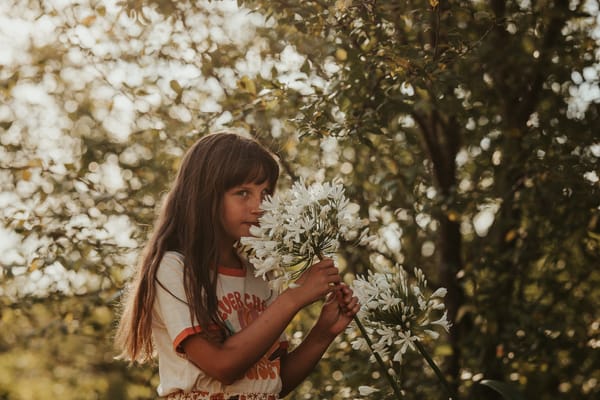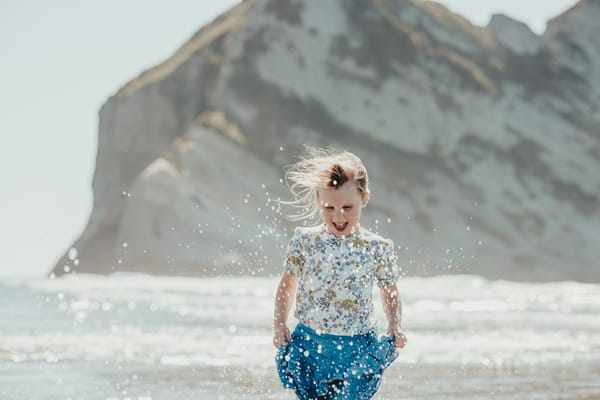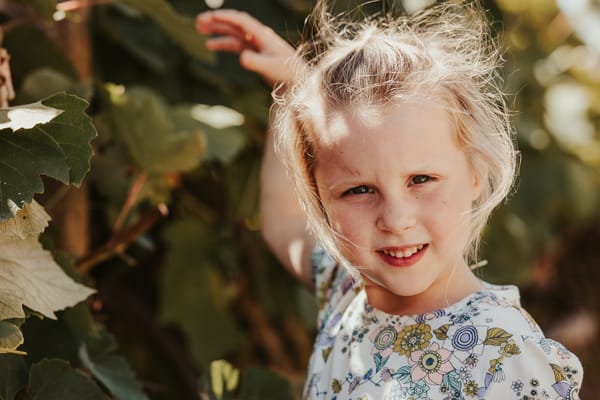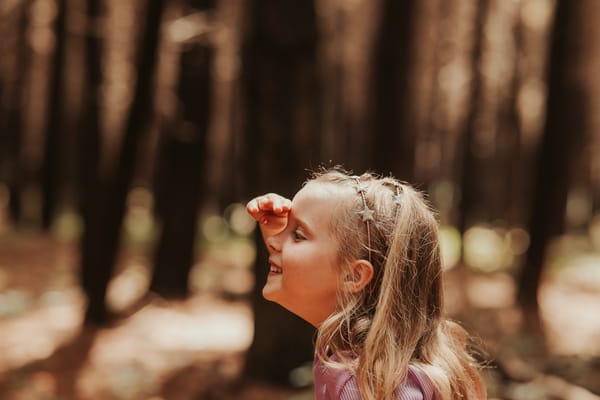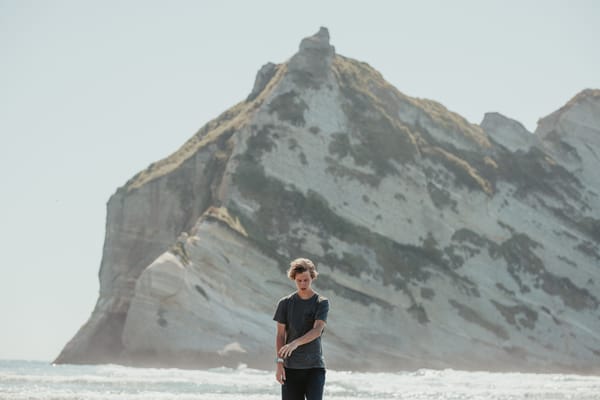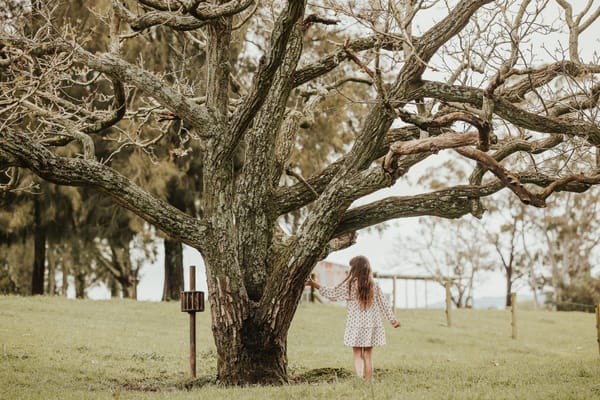I’ve been sitting with that disconnect between how we view adult freedom and childhood autonomy. I think there's something more primal happening beneath the surface, so today I want to get a little bit philosophical. Bear with me, because while this might feel slightly confrontational I think it’s worth some reflection.
What if our (society, at large) general discomfort around giving children more freedom isn't really about education and ‘preparing them for the real world’ at all? What if it's actually more about our own unresolved relationship with freedom?
Stay with me, because I think this really matters.
When we see an adult break free from something in life that isn’t working for them, a big part of why we celebrate them is because we get to live vicariously for a moment. We applaud because deep down, so many of us are still bound - at least to some extent - by the kind of thinking and choices that lead us to those places where we feel stuck. But having seen someone else do it, we think:
They’re the same as us. Change can still happen. Maybe I can make those kinds of bold choices too!
But when a child experiences that kind of freedom right from the beginning - when they never even learn that those sorts of bindings exist - that makes us think about a whole different thing. Something that’s way more uncomfortable.
Ok, we’re not the same. I never had that opportunity, and actually that kind of hurts. If only I’d had it from the start...
And that asks us to confront some hard questions (at least, I find them hard): What and who would I have become if I hadn't spent my formative years learning to put my curiosity, my natural rhythms, my deepest interests second to someone else's agenda? If my childhood wasn’t spent being measured by my ability to meet everyone else’s expectations?
I said I was going to get a little bit philosophical today, but actually this isn't abstract philosophy at all. It's deeply personal reflection. Every adult carrying that (often suppressed) weight of "what if" feels it when they see a child free from those same constraints.
And that confrontation creates fear. Not fear for the child (which is how we often present it), but fear for ourselves.
Fear that we've accepted too many limitations in our life. Fear that we've normalised our own acceptance of that for so long that true freedom feels unnatural. Out of reach. Fear that we've lost something important along the way that we can never get back.
It's easier to insist the formal, structured, restrictive system is necessary than to acknowledge what it might have cost us.
The resistance (read: allergic reaction) so many adults have to a child experiencing freedom isn't really about making sure they’re prepared for some hypothetical "real world." Maybe it is on the surface, but not deep down. Really, it's about protecting ourselves from having to reimagine what our own lives might have been. And, more importantly, what they could still be.
Because a child who grows up with a high level of autonomy in tact, who learns to trust their curiosity and instinct, who develops unbroken confidence in their ability to direct their own learning – that child will become an adult who makes different choices than most of us have made.
They'll set different boundaries. Hold different expectations. Create different systems.
They'll be less willing to tolerate the kind of constraints that many of us have accepted as inevitable. Less likely to surrender their time, their energy, their purpose to things that don't serve or align with their values.
And through all that, they hold up a mirror to the way we justify compromises we’ve long held. Compromises we continue to make.
This is why conversations about educational freedom so quickly become emotional. Often, they're not really about educational methods or learning outcomes at all – they're about our collective story of what it means to grow up, to become an adult, and to live a good life.
They're about whether submission to something completely external is a necessary part of preparing for adulthood, or whether it's simply what we've come to accept because it's what we experienced ourselves.
The truly radical act isn't just giving our children the freedom we wish we'd had. It's being willing to confront what that freedom says about the choices we continue to make in our own lives.
Because if these children don't need to spend their childhood learning to live by someone else's priorities, why do we still accept doing so in our adulthood?
If they can grow up trusting their ability to learn what they need, when they need it, and then act on that, why do we still doubt our capacity to take control of our own growth? Personal, professional, or otherwise.
If they can develop a healthy relationship with challenge and effort based on internal purpose rather than external pressure, what might change if we built that same kind of relationship for ourselves?
Perhaps the real gift of walking alongside children as they build a life based on more freedom isn't just what it offers them. It's the invitation it extends to us – to recognise where we're still playing by rules we never chose, still measuring our worth by standards we didn't set, still living according to schedules and priorities that don't honour who we truly are.
And perhaps, in witnessing their freedom, we might find the courage to reclaim more of our own.
This mirror works both ways, too. When children see adults actively reclaiming their autonomy – making conscious choices about work, questioning societal expectations, or redesigning their lives around deeper values – it creates a powerful validation of their own path.
A child who sees their parent leave a draining job to pursue more meaningful work learns something profound about courage and self-trust. A child who watches an adult set boundaries around their time and energy absorbs lessons about personal worth and balance that no curriculum could ever teach. A child who hears the adults in their life questioning conventional wisdom rather than just accepting everything develops strength in their conviction and ability to do the same.
Our children are watching us, not just listening to what we say. When we show them that freedom isn't just something we talk about but something we actively pursue in our own lives – even when it's difficult, even when it goes against the grain – we show them that this journey continues throughout life. That reclaiming your autonomy isn't just a childhood luxury or something that finally happens in a midlife crisis, but an ongoing practice of living intentionally.
And through doing so, we create a virtuous cycle. Their natural freedom inspires our courage. Our bold steps to take back our autonomy validates their path. Together, we learn to live less by external expectations and more by internal truth.
And perhaps this is the real power of educational freedom – not just that it creates a different kind of childhood, but that it creates the possibility for a different kind of adulthood too. One where freedom isn't something we finally earn after decades of quiet compliance and growing frustration, but something we continually practice, expand, and pass on.
One where the courage to live authentically isn't rare enough to warrant TED talks and bestselling books, but common enough to reshape what we collectively understand as "normal."
Because in the end, that post I shared wasn't just about a double standard in how we view children's versus adults' freedom. It was about imagining (and building) a world where neither children nor adults need to escape systems that weren't designed with their best interests at heart in the first place.
A world where we don't need to celebrate breaking free, because freedom was never surrendered to begin with.
That world begins with the choices we make today – for our children, yes, but equally importantly, for ourselves.
I'm Issy - a home educating dad and the voice behind The Life Without School Podcast 🎙️ Every week I send out grounded, thoughtful encouragement through emails just like this. If you’re not already signed up to get them, drop your email address into the box below - I'd love to send them your way.
And if you’d like to go even deeper on this very topic, I share a new episode inside my private Life Without School Collection every week. These are research-backed episodes that tackle the real doubts, decisions, and mindset shifts that shape home educating life, giving you practical tools to grow your confidence, deepen your trust in your child, and build a home education journey that truly fits your family.
(there’s already more than 10 hours of listening waiting for you inside, growing every week)
📚 Find out more about the Collection here

